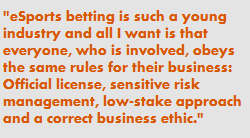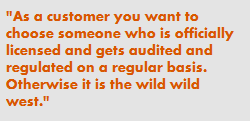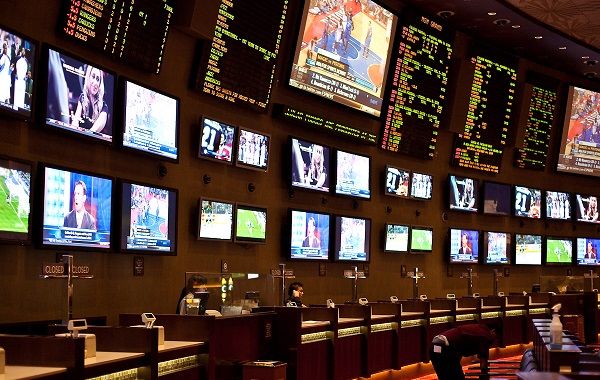eSports is no stranger to betting. Throughout the years, various community and news sites have developed their own systems where their readership base can place a made-up virtual currency on certain players or teams. Like in real sports betting, these systems would provide extensive background of the participants as well as essential statistics like head-to-head records, recent performances, rankings and so forth.
This "just-for-fun" concept grew bigger with time and became inseparable part of eSports. With no real risk involved besides losing a few imaginary tangoes and no actual cash transactions happening, it's an easy decision for the fans to bet and the community sites to create and develop betting systems in return. In 2014, the virtual eSports betting has its own communities, whose reach is growing monthly. A quick look at GosuGamers' own GosuBets exemplifies this perfectly: our holidays post from December reports 175,000 total bets placed for the second half of the year, while figures of 2014 show close 59,000 for the first half of March only.
The bloom of eSports betting - non-monetary as it might be - naturally doesn't elude companies who want to take it one step further and introduce the industry to real-money betting. This, however, is accompanied by a myriad of additional challenges: where non-monetary systems like GosuBet only have to worry about providing accurate, up-to-date data, the real money betting companies have to solve license agreements, risk management, auditing, taking and refusing bets depending on the stakes and more.
To learn more about the subject, GosuGamers' Mathias "dopeshow" Schemedeshagen sits with Tom "straightbambi2" Lemke, former Counter Strike professional, co-founder of Mousesports CS and now head of marketing of eSportsventure.com.
?he interview was conducted on March 13th, 2014.
 Hi Tom. You were part of the original mousesports CS roster back in 2002 and have come a long way since then. How come you made it into the gambling sector and would you consider yourself to be an ambassador of eSports gambling in an industry that is used to the seasoned environment of traditional sports?
Hi Tom. You were part of the original mousesports CS roster back in 2002 and have come a long way since then. How come you made it into the gambling sector and would you consider yourself to be an ambassador of eSports gambling in an industry that is used to the seasoned environment of traditional sports?
Mousesports. Good memories. Eating kebabs with the guys and winning almost every LAN event in Germany at that time. Was fun!
I’ve entered the betting industry as a live-betting trader in 2006. I somehow managed to stay in that industry and worked my way up. I wouldn’t consider myself as an ambassador of eSports gambling. eSports betting is such a young industry and all I want is that everyone, who is involved, obeys the same rules for their business: Official license, sensitive risk management, low-stake approach and a correct business ethic. eSports betting must become more professional, that’s what I am working on.
On your website you state to be licensed by ‘LGA’ and you've promoted this license as something beneficial for your customers in other places before. Please tell us a bit about this LGA thing and the influence it has on the gambling business.
The "Lotteries and Gaming Authority" is a single regulatory body that is responsible for the governance of all gaming activities in Malta including amusement machines, broadcasting media games, casinos, commercial bingo halls, commercial communication games, the national lottery, non-profit games and remote gaming.
Since the enactment of the Lotteries and Other Games Act, 2001 the LGA established the following mission statement:
"To regulate competently the various sectors of the lotteries and gaming industry that fall under the Authority by ensuring gaming is fair and transparent to the players, preventing crime, corruption and money laundering and by protecting minor and vulnerable players." (Source)
There are too many things that need to be said about this license as it is covering all aspects of lottery and gambling, but you can read up on it all here.
The main aspect related to people who place bets on eSports matches, our company and the eSports related gambling industry is that LGA sets rules and regulations that are proven by years and years of being in the business and established in the multi-billion industry of traditional betting.
Just as an example, and probably the most important example to name, the authority requires a company applying for a license to have a minimum issued paid up share capital when registering the company with the competent authority according to the class of license you want to secure for your business.
 In our case this is a class 2 license, which means we put a hundred thousand euro on our bank account. What does that mean for the customers of eSportsventure? It means that the player funds are protected by a wide range of additional measures enforced by LGS such as:
In our case this is a class 2 license, which means we put a hundred thousand euro on our bank account. What does that mean for the customers of eSportsventure? It means that the player funds are protected by a wide range of additional measures enforced by LGS such as:
1. A client’s account is set up by the licensee, which account is held with a credit institution approved by the authority and is separate from the licensee’s own funds;
2. The client’s account cannot be used to rectify/indemnify any of the licensee’s financial problems since such account is distinct from the licensee;
3. The LGA may request the licensee to issue a bank guarantee in the Authority’s favour in order to protect the players’ funds;
4. The credit institution is to disclose any information requested by the Authority regarding players’ accounts;
5. The licensee cannot deal with the amount of money in the player’s account except in the circumstances established in the Regulations.
What other licenses are available?
There are only three legitimate licenses a bookmaker can obtain. The first one is called “Remote Gambling” license and is issued by the Gambling Authority of Gibraltar. The second one is issued by the LGA (Lotto and Gaming Authority) of Malta. The third license is handed out by Curacao.
How come there is no other licenses than Gibraltar and Malta? There’s various destinations known for their gambling such as Macau, Monaco or Singapore. Even Las Vegas comes to my mind right now...
Let’s take a look at Costa Rica for instance:
Because a Costa Rica Online Gambling License, does not exist, nor a Data Processing License or any other kind of E-Gaming License, starting an Online Gambling Business is fast and simple. This absence of legislation dealing with online gambling means the businesses and operations of Costa Rica-based gaming companies are not subject to the regulations, monitoring, and testing to which most offshore governments subject their licensees. Most Online Gambling Companies are self-regulated. Because there is no official organization to recognize license holders, there is no betting or gaming tax.
In the end it boils down to this: As a customer you want to choose someone who is officially licensed and gets audited/regulated on a regular basis. Otherwise it is the wild wild west.

Which measures does esportsventure have in place to prevent abuse?
We employ a variety of techniques in order to keep E-sports betting safe and secure.
First of all, we make sure to research the tournaments ahead of offering odds for the matches. This includes such things as prize-pool and which teams are partaking. If the prizes are so low they would create risk of collusion, we will not offer the tournament at all or we will impose limitations on stakes and payouts. The limitations vary depending on the prizes offered. Some times, you will find that your bet gets flagged even on a major league like GSL or LCS: This is usually only because after a certain limit has been reached, we prefer to manually accept high-stake bets but 95% of the time these bets get accepted within 90 seconds.
Secondly, we familiarize ourselves with the players / managers in the industry and we do not allow these people to bet on events they are themselves involved in. If they want to bet on a separate league, that is something we can allow.
As is the case with all risk management across the globe, we watch trends closely - especially when it’s related to weak outsiders that see “strange” betting behaviours. If we suspect anything, we will begin by disabling the event and (worst case scenario) void and refund all bets associated with the match if we can provide proof related to match fixing or collusion. All bets are voided previous to the start of the event. Furthermore, because E-sports matches can sometimes face irregular starting times, all and any bets placed after the start of an event will be made void.

In a recent incident, a DOTA 2 team was accused of match-fixing because they played with an unusual team composition. We had a very normal betting behaviour on that match and couldn’t find anything suspicious. After we paid out the winnings from every user who bet on the other team to win, we read that there was, allegedly, match-fixing involved. What did we do? The users who bet on the outsider got to keep their winnings and we returned (!!) the stakes for all users who bet on the favorite.
We also have abuse prevention in place for promotional campaigns, such as Deposit Bonuses, Referal programs etc. These are always covered in Terms and Conditions published ahead or along with any promotions we offer.
Last week there was a match going on between Cleave vs. rox.KIS. We had Cleave at 5.15! A lot of attempts were made to place high stakes on Cleave. We did not take those bets. The highest bet we allowed was 10 Euro. In the end rox.KIS won so everything was okay. A bookmaker has a responsibility towards its customers to ensure a safe betting operation. That is why we are so careful.
This sounds like you do the odds manually. Assuming this is correct, how do you ensure that the book-keepers have proper eSports knowledge and background to be on par with the happenings of the scene? Who ‘pays the bill’ if you are not able to sort out fraudulent behavior or if anything else happens that would have a negative impact on your customers?

Our traders actually play the games. Some of them used to play on the highest national level. They know their way around eSports. I think this is very important because you have to be very careful when it comes to eSports betting. An example: We’ve offered the German CS:GO #1 EPS Spring Cup recently but we’ve limited the bets to 20 Euro. You could not bet more than 20 Euro on any of those matches. We have to keep it safe! In case of matchfixing, it is always the bookmaker who gets damaged the most. If we can't spot it before, we have to judge on a case-by-case basis what we are going to do. The most common thing would be to return all stakes so there is no harm done and to suspend every suspicious account.
Without having any inside knowledge I anticipated odds to be created based purely on data, not on opinions of people. How come this is different for eSports betting?
Our traders are eSports experts. Sure, from time to time we offer the wrong odds, but that is our own fault. Users should take advantage of that. Of course we use data, our own ELO software and our personal opinion to craft the odds.
You offered Hearthstone for the SeatStory Cup. Which games will you be offering in the near future?
I do think that Hearthstone has a big potential to become a sport where people would like to bet on. The SeatStory Cup went fine for us. Right now we are focussing on the IEM/EMS Katowice where we offer bets on all of the games. I am especially looking forward to watch an international League of Legends tournament. I am also really hyped for the CS:GO tournament. Awesome teams are attending.

